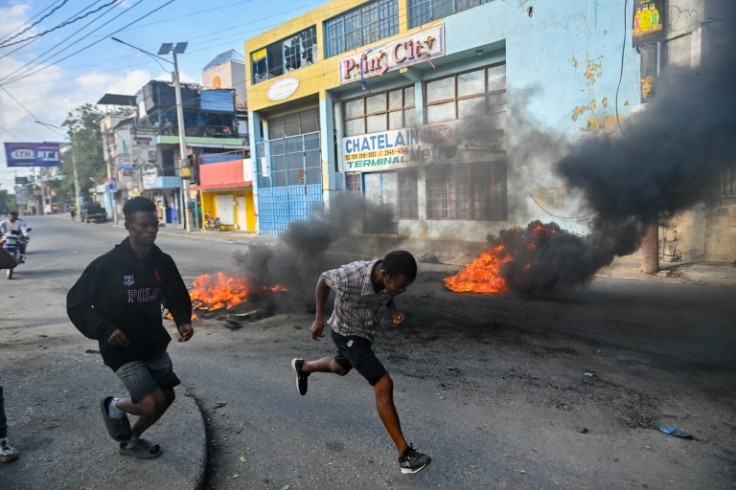
Haiti's children are at the heart of a worsening humanitarian crisis marked by hunger, displacement, and escalating violence that includes child soldiers, a new report detailed. Over 1.5 million children have lost access to education, and many face growing risks of exploitation, including recruitment into armed gangs, UNICEF reported during a U.N. special meeting.
Political instability, natural disasters, and deep-rooted poverty mark a crisis that has alreayd forced 700,000 Haitians—365,000 of them children—into overcrowded camps lacking basic sanitation, with no access to drinking water or latrines.
2 million people in Haiti are at emergency levels of food insecurity. WFP's Country Director Wanja Kaaria said the agency is scaling up food deliveries amid surging needs but noted critical funding gaps in the U.N.'s $674 million humanitarian response plan, as reported by the Miami Herald.
Gang recruitment of minors has soared by 70% in the past year, with children now making between 30% and 50% of gang members, according to the U.N.'s leading child welfare agency, UNICEF. Reports of sexual violence against children have risen by 1,000%, further underscoring the dire situation.
"Haiti is one of the worst places on the planet to be a child," UNICEF Executive Director Catherine Russell said, adding children and families continue to experience "unprecedented levels of lawlessness and brutality at the hands of the armed groups."
Haiti's youth make up nearly half of the population, yet they are bearing the brunt of the unprecedented gang crisis. U.N. Economic and Social Council President Robert Rae urged global action to protect Haiti's most vulnerable citizens. "Time is not our friend," Rae said.
Armed groups continue to control vast areas of Haiti, including most of the capital. A multinational force led by Kenya is struggling to make progress, while funding for security and humanitarian efforts remains insufficient.
Maria Isabel Salvador, the U.N. special representative for Haiti, warned, "The intertwined crises are existential threats to society itself, with children paying the heaviest price."
Efforts to address the crisis include initiatives like UNICEF's new campaign to prevent child recruitment through art and music, led by Haitian artist Jean Jean Roosevelt. However, leaders stress that sustained funding and coordinated international action are essential to improve children's lives.
"There's more we can do, and we must do better," said Ulrika Richardson, the U.N.'s humanitarian coordinator. "Without immediate action, the situation for Haiti's children will worsen."
Haiti's security crisis worsened dramatically in recent weeks, forcing the suspension of U.N. humanitarian flights and a 30-day ban on U.S. commercial air travel to Haiti due to gunfire targeting airlines coming from the United States.
In a dramatic political move, Haiti's presidential council has also dismissed Prime Minister Garry Conille, appointing businessman Didier Fils-Aimé as his replacement.
© 2025 Latin Times. All rights reserved. Do not reproduce without permission.







